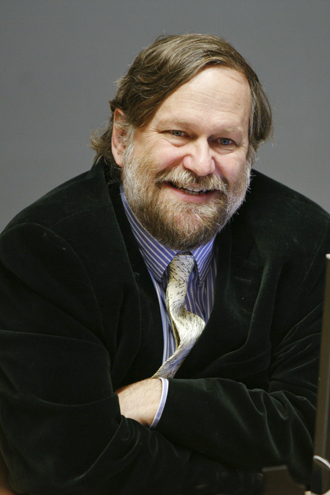The immortal Gettysburg Address
Professor John Burt dispels misconceptions about one of America's most cherished speeches
 Photo/Mike Lovett
Photo/Mike LovettJohn Burt
One hundred fifty years ago today, President Abraham Lincoln delivered a two-minute speech that became one of the most cherished in American history. Lincoln addressed an audience of about 15,000 at the dedication of the Soldiers’ National Cemetery four months after the Union defeated the Confederacy at the Battle of Gettysburg. BrandeisNOW spoke with English professor John Burt, author of the critically acclaimed “Lincoln’s Tragic Pragmatism,” about the meaning of the Gettysburg Address.
What are some of the greatest misconceptions about the Gettysburg Address?
It’s not true that Lincoln wrote it on the train to Pennsylvania from Washington, D.C. It was the fruit of a great deal of thought and issues that he’d been thinking about over a lifetime. It’s also not true that the speech was a complete failure. We think the speech was a failure because Lincoln thought so. But Lincoln thought most things he did were a failure, so that’s not a good way to judge.
It is true the applause following the speech was a bit scattered; people did not expect the speech to be so short, and the audience was taken by surprise.
Senator Edward Everett himself, who gave a two-hour speech before Lincoln’s, understood that the speech was good and wrote Lincoln telling him so. It isn’t true that Everett’s speech was boring. It was a very good speech with good points, but it wasn’t 300 words.
What makes the Gettysburg Address so famous?
It’s very easy for a wartime elegy to be inauthentic, particularly when it’s given by a political figure, because one of the tasks of wartime elegy is to motivate soldiers to continue the war, even in the face of great bloodshed. Typically, a wartime elegy says, in so many words, ‘These people died, don’t let their death be in vain.’ It’s easy for that to sound inauthentic.
Lincoln’s address tied the suffering of the soldiers who had died, and the civilians who had lost their families, to a sense of the meaning of American democracy. The speech called not just for military victory but also for a new birth of freedom. It would require the nation to live up to the tenets of the Constitution we had never lived up to — namely, that all men are created equal.
He defined the war in a remarkably unvitriolic way — as a war that tests whether any nation dedicated to equality can endure slavery. He did not define the war as a crusade against slave owners. The main distinction that matters in the speech is that between the living and the dead, not that between the North and the South.
Why are the first words so frequently quoted?
If you look at the verbs of the first sentence — ‘brought forth,’ ‘conceive,’ ‘dedicate’ — those are all words that describe the birth and baptism of a child. Opposition newspapers ridiculed those words. The metaphor actually has a great deal of meaning. The U.S. had to grow into a real understanding of freedom, which was not something the Founders were able to fully define. They couldn’t because they were entrapped by slavery. The nation had to endure the inevitable traumas of growing up, as any democracy would.
What can we learn from the Gettysburg Address 150 years later?
I think it is common to understand it as saying the aim of the war is not just restoration of the Union but emancipation of the slaves. Lincoln says equality but means racial equality. The central value he picks out in the Declaration of Independence is not life or liberty, it’s equality. Equality is one citizen’s respect for another: Everyone recognizes that everybody is a human being and deserves a say. Lincoln has a very deep idea of equality that transcends emancipation.
I don’t think we ever fully understand what is required of us to recognize others as equals. One of the big lessons of equality is that its meaning continues to unfold.
Categories: General, Humanities and Social Sciences





